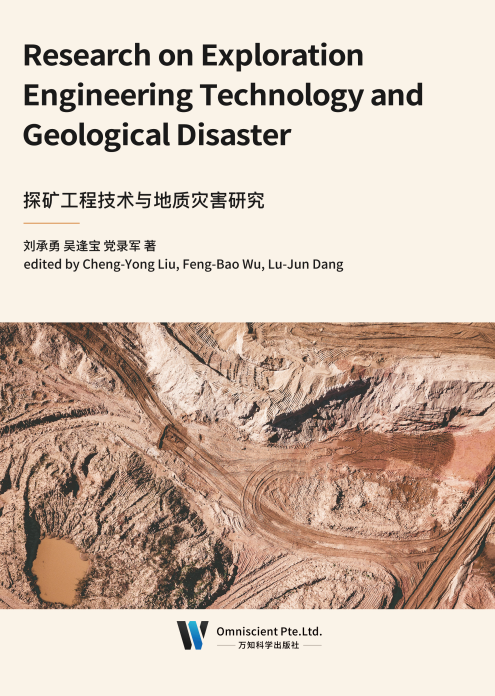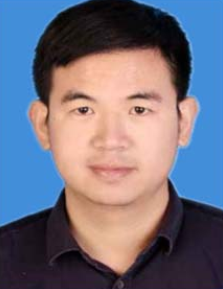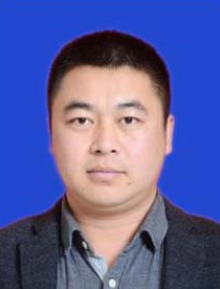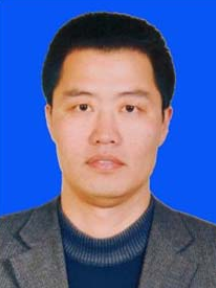
Preface
The main content of mineral resources exploration is prospecting. Prospecting refers to the working process of using remote sensing technology, geology, geochemistry, geophysics and other methods to search for ore deposits according to the metallogenic theory and known metallogenic law of ore deposits and the geological conditions of the working area. According to the principle of gradual progress, mineral resources exploration can be divided into four stages: pre survey, general survey, detailed survey and exploration. Its tasks are to make prospective evaluation of regional mineral resources, submit deep exposure point, submit exploration point and submit deposit. The work of each stage of mineral exploration should be guided by the analysis and study of the regional metallogenic geological conditions, and the comprehensive prospecting method should be adopted according to the regional geological characteristics and local conditions, so as to achieve the goal more scientifically and economically.
The basis of mineral exploration can also be called the prospecting basis or the criterion of prospecting, which refers to the geological basis for the formation and distribution of the deposits in a certain area. According to the basis of mineral exploration, we can distinguish the prospecting direction, predict the possible deposit types and favorable metallogenic areas under certain geological conditions, and reasonably select and use the prospecting methods. Therefore, the basis of mineral exploration is of great significance to improve the prospecting effect.
The major of geological engineering includes two major directions: traditional engineering geology and prospecting engineering, which is indispensable for the national economic construction in China. With the development of human society and technological progress, its status is becoming more and more important, and its application field is also increasingly extensive. Geological engineering specialty is not only for the traditional geological prospecting service, but also widely used in the fields of industrial and civil buildings, major infrastructure construction, geological disaster prevention and control, and is closely related to people's production and life.
前 言
矿产资源勘查的主要内容是找矿,找矿是指运用矿床成矿理论及已知成矿规律,根据工作地区地质条件,采用遥感技术与地质学、地球化学、地球物理学等方法寻找矿床的工作过程。矿产资源勘查按照循序渐进、逐步深入的原则划分为:预查、普查、详查和勘探 4 个阶段。其任务分别是对区域矿产资源作出远景评价、提交深部揭露点、提交勘探点和提交矿床。矿产勘查各阶段的工作,都应以该区域成矿地质条件的分析研究为指导,根据区内地质特征因地制宜采用综合找矿方法,才能更科学、更经济地达到目的。
矿产勘查依据亦可称找矿依据或找矿判据,是指在某一地区内矿床形成和分布的地质依据。根据矿产勘查依据,可以判别找矿方向,预测在一定的地质条件下可能存在的矿床类型和成矿有利地区,可以合理地选择和运用找矿方法。所以,矿产勘查依据对提高找矿效果具有非常重要的意义。
地质工程专业包括传统的工程地质与探矿工程两个专业方向,它是我国国民经济建设不可缺少的专业。随着人类社会的发展和技术进步,其地位愈加重要,应用领域也日益广泛。地质工程专业除了为传统的地质找矿服务外,当前还广泛应用于工业与民用建筑、重大基础设施建设、地质灾害防治等领域,与人们的生产和生活密切相关。

Cheng-Yong Liu, male, the Han nationality, bachelor’s degree, engineer of Geology (hydraulic ring), born in Zhengzhou City, Henan Province in May 1985. He graduated from China University Of Geosciences (Wuhan) in 2010. At present, he works in the Second Geological Environment Survey Institute of Bureau of Geology and Mineral Exploration and Development of Henan Province. He has presided over and participated in more than 30 hydraulic and environmental projects, including more than 10 national and provincial financial projects. He has published more than 10 papers in national and provincial professional journals, won many department and bureau level awards, and provided geological and technical support for government decision-making for many times.
刘承勇,男,汉族, 1985 年 5 月生,河南郑州人, 2010 年毕业于中国地质大学(武汉),大学本科学历,地质(水工环)工程师,现就职于河南省地质矿产勘查开发局第二地质环境调查院。 主持参与水工环类项目 30 多个, 其中国家和省级财政项目10 余个,曾在国家、省专业期刊上发表论文十余篇,获得多个厅局级奖项,多次为政府决策提供地质技术支撑。

Feng-Bao Wu, male, the Han nationality, born in Xi’an City, Shaanxi Province in December 1985. He graduated from Guizhou University majored in resources exploration engineering. He is mainly engaged in geological survey and mineral exploration work. Since his career, he has participated in, responsible for and completed more than 10 large and medium-sized mineral geological exploration projects and dozens of small geological projects, and is familiar with the exploration of gold, coal, bauxite, non-metallic building materials and other minerals. He also has rich experience and unique understanding in mining development and mining right investigation.
吴逢宝,男,汉族, 1985 年 12 月生,陕西西安人,毕业于贵州大学资源勘查工程专业,主要从事地质调查与矿产勘查工作。从业以来,先后参与、负责、完成过十多个大中型矿产地质勘查项目和数十个小型地质项目,熟悉金、煤、铝土、非金属建材等矿种的勘查。在矿业开发和矿权调研方面亦有较为丰富的经验和独到的认识。

Lu-Jun Dang, male, the Han nationality, bachelor’s degree, born in Baiyin City, Gansu Province in August 1976. He graduated from Central South University. He is mainly engaged in mine geological exploration and management. He was employed as the geological engineer on 17th June 2015. And on 19th December 2016, he won the second prize of excellent thesis of young technical talents of group company. He published apaper in national famous journal.
党录军,男,汉族, 1976 年 8 月生,甘肃白银人。毕业于中南大学本科学历;主要从事矿山地质勘查及管理方面的工作, 2015 年 6 月 17 日被聘为地质工程师; 2016年 12 月 19 日获得集团公司青年技术人才优秀论文二等奖;曾在国内知名刊物发表论文一篇。